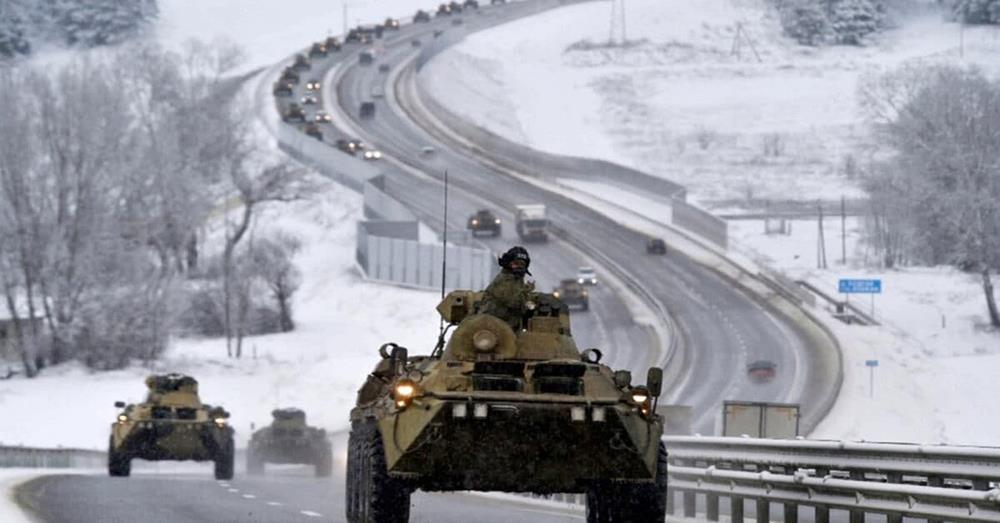WASHINGTON, Jan 18 (AFP) - The United States raised the alarm on Tuesday (Jan 18) on a potentially imminent Russian attack against Ukraine, ahead of a whirlwind diplomatic mission by Secretary of State Antony Blinken.
With tens of thousands of Russian troops already massed on Ukraine's borders, Blinken flew to meet with the Ukrainians and European allies, ahead of talks with Russian Foreign Minister Sergei Lavrov on Friday.
US officials upped the threat level, saying that the slow-brewing crisis was reaching a dangerous new stage.
"We believe we're now at a stage where Russia could at any point launch an attack on Ukraine," White House Press Secretary Jen Psaki said. "I would say that's more stark than we have been."
In an ominous new development, a senior State Department official said there is concern that draft constitutional reforms in Belarus, an authoritarian state closely allied to Moscow, could allow deployment of Russian nuclear weapons.
This came as Russian troops poured into the country for what were said to be training exercises but at levels that the US official said were far "beyond normal".
Russia insists it has no plans to invade Ukraine, where in 2014 it already seized one province and backed separatist rebels in another region.
However, Moscow's build-up of offensive weaponry and troops leaves little doubt that at least a potential assault is being prepared as a way to back the Kremlin's broader aim of preventing pro-Western Ukraine from leaving the Russian sphere of influence.
Among Russia's demands is a pledge from the NATO alliance that it never offer Ukraine membership - something NATO calls a non-starter.
Psaki blamed the Russian leader, saying "President Putin has created this crisis" and warned again that unprecedented economic sanctions would follow a Russian attack against Ukraine.
"No option is off the table" when it comes to sanctions, she said, warning of an "extremely dangerous situation".
Psaki stressed that this could include shelving the Nord Stream 2 natural gas pipeline from Russia to Germany.
The pipeline, which has been completed but not commissioned, is seen as an important part of Europe's energy supply network, but also a crown jewel in Moscow's export capabilities.
"Our view continues to be that stopping the Nord Stream 2 pipeline is a credible piece we hold over Russia," Psaki said.





